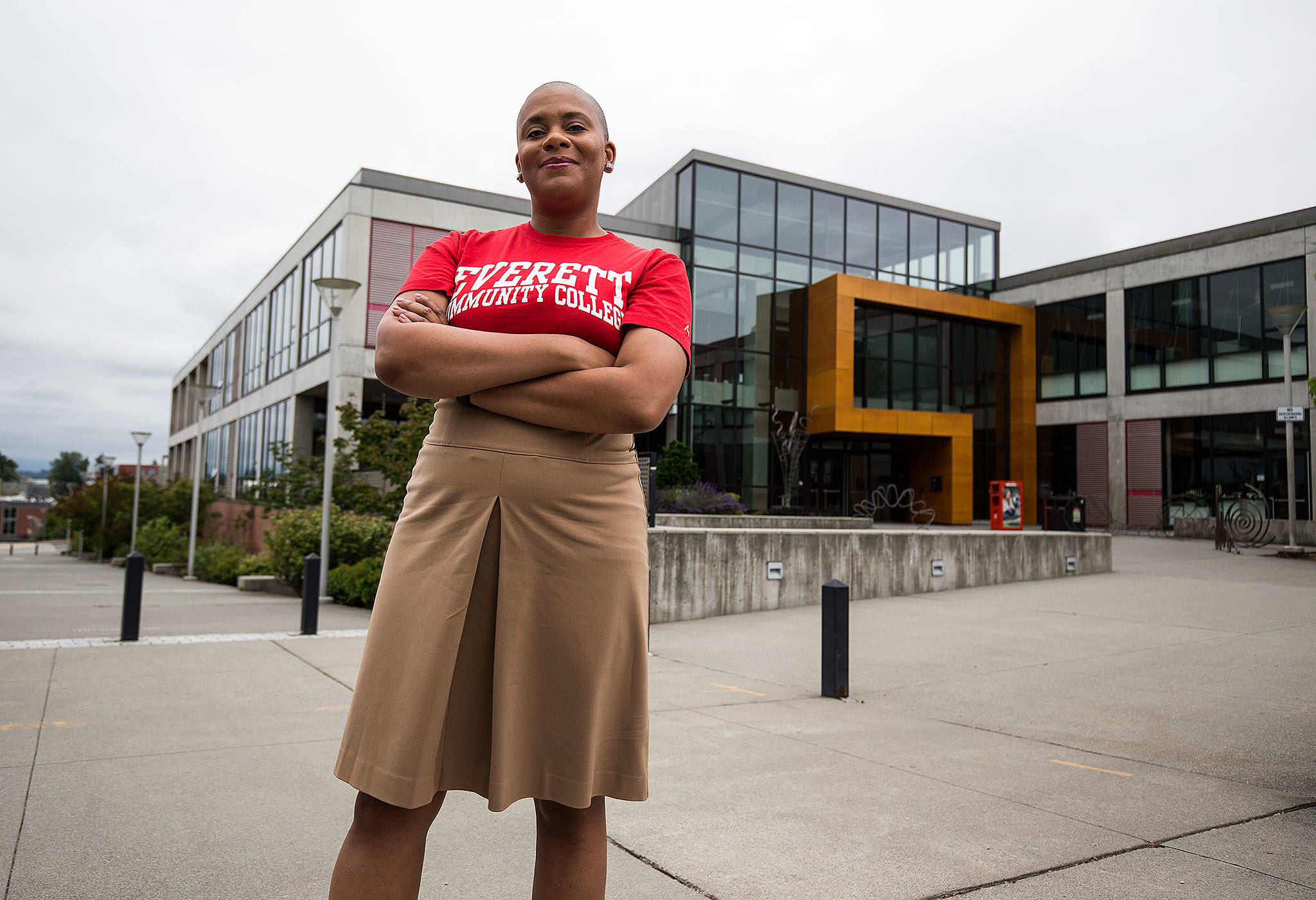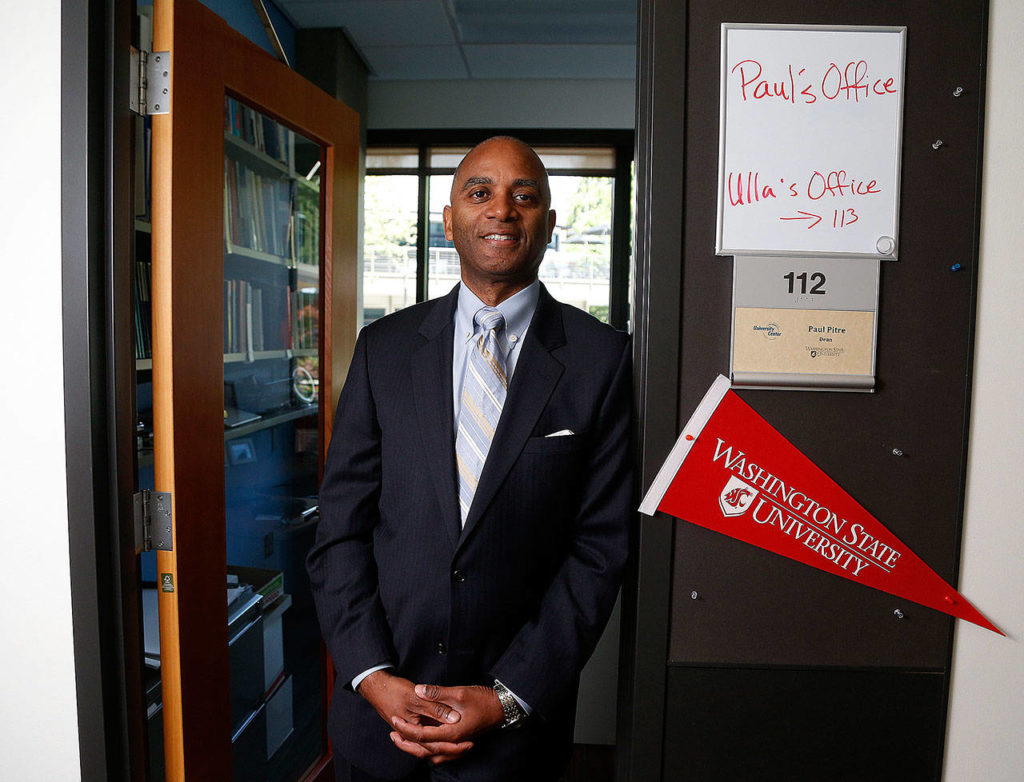By The Herald Editorial Board
Few will be as eager to be done with the restrictions and workarounds that have been forced by the covid-19 pandemic than college students.
For most, the lectures, workshops and discussions have gone online and the social aspects of college life have been greatly curtailed.
One thing that hasn’t changed for most, however: college’s costs for tuition, fees, texts, room and board and other expenses. But the flip side of that investment is that students still have the opportunity to benefit from their educations, acquire skills and knowledge and complete their studies with credentials that greatly improve their chances for careers with which they can support families.
Malak Qibaa is a 2017 graduate of Mountlake Terrace High School and took Running Start courses at Edmonds College. She is now in her fourth and final year at Seattle University. Qibaa, who is studying international business, is currently serving an executive internship with the City of Everett, working on youth and homelessness issues. After graduation, Qibaa hopes to continue work in the nonprofit sector or in project management.
Chloe Edwards, a South Whidbey High School graduate who commuted to training at the Sno-Isle Tech Center during her final two years of high school, took business courses at Edmonds College and worked with its foundation. She is currently enrolled in her second quarter at Seattle University. A fiber artist, Evans hopes after graduation to work in arts administration with an organization or foundation.
Among the things Edwards and Qibaa share are a determination to find careers that help themselves and others as their communities emerge from the pandemic’s economic and other hardships.
They also share a reliance on scholarships, grants and other financial aid.
A private college, Seattle University’s charges for tuition, room and board and more are significant — $45,000 for tuition alone — and would not have been affordable for either without financial aid. Evans estimates her aid package has paid for up to three-quarters of her overall costs; Qibaa said her scholarships and grants have paid from 45 percent to 60 percent of her costs; yet both also work part-time and have taken on student loans.
“As much as my mother encouraged me to go to college, she is a single mother and it was like, ‘If you want to go to college, you have to figure it out,” Qibaa said.
Both said they’ve been fortunate to benefit from state and federal grants and scholarships, aid that is scheduled to expand for students with the 2021-22 school year and beyond under the Washington College Promise program, which is expected to serve some 90,000 students in the state with free or partial coverage of tuition and fees, based on income, under the College and Workforce Development Act passed by the Legislature in 2019. The act was a significant commitment by the Legislature and required an increase in the state’s business and occupation tax, with an eye toward developing the educated workforce the state’s industries and other employers depend upon.
At the time of its passage, Forbes magazine called the act “one of the smartest financial aid packages in the country” because it was structured so the financial responsibility would partly fall on businesses benefiting from an educated workforce.
At the same time, public colleges and universities have also benefited from increases in state support that had wavered in the years after the Great Recession, following the 2008 financial crisis.
“The Great Recession was a devastating time for higher education,” said Dr. Paul Pitre, chancellor of Washington State University-Everett. State budget cuts forced by declining revenues meant state colleges and universities saw 40 percent to 50 percent cuts to their state allocations, which meant that those institutions had little choice but to impose double-digit tuition increases for several years.
Like the additional financial aid for students, higher education has slowly seen better financial support. While higher education is still having to do more with less, Pitre said, that support has allowed colleges and universities to maintain quality, keep tuition affordable, expand enrollment and increase diversity. As of 2020, he said, system-wide support has returned to near where it was before 2008.
But the pandemic has higher ed looking over its shoulder.
“The real fear with the pandemic is we might fall back into that cavern,” Pitre said.
This is not to question the commitment of state lawmakers toward education and higher education in particular, but broad calls for funding throughout the state for legitimately worthy programs and needs may — at a time of reduced revenues because of the pandemic’s economic effects — seem to overwhelm the resources available.
A reminder, then, of the return on investment that education provides — in public schools and in higher education — is worth repeating.
“We really provide a community service and a community resource, and we give back to business and industry when our colleges are able to function at their highest level,” said Dr. Daria Willis, president of Everett Community College, which has built a close working relationship with its neighbor across the street at WSU-Everett.
One example of that service, Willis said, is the college’s nursing program, one of the few programs to quickly return to in-person study for its students in the pandemic’s early days.
That full resumption of the nursing program, Willis said, became a model for other community and technical colleges in the system to help fill a vital need in the health care community.
“We need nurses to go out and help fight this pandemic,” she said. “Everyone is struggling right now, but an educated society — with the social unrest we’ve seen — it’s important that people are educated and can think for themselves and think critically and give back to society.”
Edwards and Qibaa represent the immense good that will come of the investment made in higher education and financial aid.
Edwards recognizes that the economic effects of the pandemic will have hit the fine and performing arts sectors particularly hard.
“It was one of the first to shut down and they’ll be the last to come back,” she said.
Edwards’ work with the Edmonds College Foundation included helping her peers connect with available resources, work she wants to continue for her benefit and others.
“I want to be helpful,” she said. “And I want to live.”
Correction: An earlier version of this editorial gave an an incorrect last name for Chloe Edwards.
Talk to us
> Give us your news tips.
> Send us a letter to the editor.
> More Herald contact information.


























